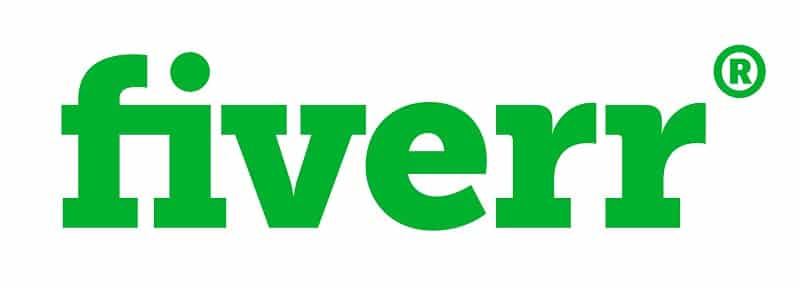
In today’s fast-paced world, finding a hobby that brings joy and helps make money can be gratifying. Engaging in these activities allows individuals to indulge in their passions and provides opportunities to earn extra income. From fitness lovers to craft enthusiasts, a wide range of hobbies cater to various interests while creating a potential revenue stream.
Some hobbies, such as teaching fitness classes or making crafts, are known to generate a decent income. Individuals can successfully turn their pastimes into profitable ventures by utilizing existing talents and creating marketable products. The possibilities are endless, with many creative ways to monetize hobbies that align with an individual’s unique skills and passions.
As people explore different hobbies to make extra money, it is crucial to consider the tax implications and other factors of generating additional income. By finding the right balance between passion and financial gain, these activities become fulfilling and economically advantageous.
How can I make money from my hobby?

If you’re wondering how to make money from your hobby, here are some key strategies to consider:
Identify Your Niche
Start by identifying a niche or market within your hobby with the potential for monetization. Determine what sets you apart and makes your offerings unique.
Develop Your Skills
You can invest your spare time, in honing your skills and expertise in your hobby. Continuously improve and stay current with the latest trends and techniques to offer high-quality products or services.
Create a Brand
Establish a strong brand identity that represents your hobby-based business. Develop a compelling brand story, logo, and visual identity that resonate with your target audience.
Build an Online Presence
Set up a website or create social media accounts to showcase your work and connect with potential customers. Use these platforms to share your expertise, engage with your audience, and promote your products or services.
Offer Products or Services
Could you figure out how you can monetize your hobby? This could involve selling physical products, offering services like coaching or consulting, creating online courses or tutorials, or hosting workshops or events.
Price Your Offerings
Conduct market research to determine appropriate pricing for your products or services. Consider factors such as production costs, competitor pricing, and perceived value. Find a balance that reflects the quality of your offerings while remaining competitive.
Market and Promote
Develop a marketing strategy to reach your target audience. Utilize social media, content marketing, email marketing, and collaborations with influencers or complementary businesses to increase visibility and attract customers.
Engage with Customers
Provide excellent customer service and build relationships with your customers. Engage with them through social media, respond to inquiries promptly, and incorporate their feedback to improve your offerings.
Diversify Income Streams
Delve into different avenues to generate income from your hobby. This could include selling products through an online store, offering subscription-based services, creating digital products, an online course or partnering with brands for sponsorships or collaborations.
Continuously Innovate
Stay creative and innovative by regularly introducing new products, services, or offerings to keep your audience engaged. Adapt to market trends and feedback, and always look for ways to improve and evolve your hobby-based business.
Remember, turning your hobby into a profitable venture takes time, effort, and a strategic approach. Stay committed to your passion, be open to learning and adapting, and embrace the entrepreneurial journey. With dedication and perseverance, you can make money doing what you love.
What to Expect on Hobbies That Make Money

When it comes to making good money back from hobbies, there are a few things you can expect:
Learning Curve: Transitioning from pursuing hobbies for personal enjoyment to monetizing them may involve a learning curve. You’ll need to acquire business-related skills like marketing, sales, financial management, and customer service. You should be prepared to invest time and effort into learning these business aspects.
Market Research and Competition: Market research will be crucial to understand the demand for your hobby-based products or services. You’ll need to identify your target audience, look over competitors, and find your unique selling points. You’ll need to invest time in market research to position yourself effectively.
Ups and Downs of Income: Making money from hobbies can bring financial rewards, but it’s crucial to know that income may fluctuate. Seasonality, market trends, and customer demand can affect your earnings. You can prepare for potential income variations and set up financial plans that accommodate these fluctuations.
Time Commitment: Monetizing hobbies can require a significant time commitment. Running a business, even on a smaller scale, demands time for tasks like production, marketing, customer interaction, and administrative duties. You’ll need to invest time and energy into your hobby-based business and be prepared for potential adjustments to your daily routine.
Expanding Your Skill Set: To successfully monetize hobbies, you may need to acquire new skills. This could involve learning about marketing techniques, e-commerce platforms, financial management tools, or product development processes. Embrace the opportunity for personal growth and skill development as you navigate the entrepreneurial journey.
Networking and Collaboration: Engaging in business activities related to your hobbies may lead to networking opportunities and collaborations. You’ll have the chance to connect with like-minded individuals, industry professionals, and potential customers or clients. You can contact us in networking events, online communities, and collaborations if you want to expand your reach.
Balancing Passion and Profitability: It’s crucial to balance maintaining your passion for your hobbies and ensuring profitability. As you monetize your hobbies, you may encounter decisions where you must align your interests with market demands or customer preferences. Finding the sweet spot between passion and profitability will be crucial for long-term success.
Customer Interaction: You’ll likely interact directly with customers or clients when monetizing hobbies. This can involve responding to inquiries, handling feedback, and ensuring customer satisfaction. I want you to know that you should be able to develop strong customer service skills and maintain open communication channels with your audience.
Continuous Adaptation and Evolution: The market and industry trends are continually changing. To stay relevant and competitive, expect you’ll need to adapt and evolve your hobby-based business over time. This may involve updating your offerings, exploring new marketing strategies, or expanding into related areas.
Rewards Beyond Financial Gain
While financial gain is a significant motivation for monetizing hobbies, remember that there can be other rewards too. These include personal fulfillment, creative expression, a sense of achievement, and the joy of sharing your talents. Appreciate the non-financial rewards that come with turning your hobbies into a business.
By setting realistic expectations and being prepared for the challenges and rewards ahead full time business with, you’ll be better equipped to make money from your hobbies. Embrace the entrepreneurial spirit, stay adaptable, and enjoy the process of turning your passions into a profitable venture.
Popular Money-Making Hobbies

Photography
Photography is a creative and profitable hobby. Many start by taking pictures for friends and family, eventually expanding their clientele. There are a range of ways to monetize photography, such as:
- Selling prints online
- Offering portrait sessions
- Providing event photography
Writing
Writing is another versatile money-making hobby. Whether you’re interested in blogging, freelancing, or publishing books, there’s potential for income generation. Some popular writing categories include:
- Ghostwriting
- Copywriting
- Content creation for websites
Gardening
Gardening provides both physical and mental benefits while allowing you to make money. Some popular gardening money-making strategies are:
- Growing and selling produce at local markets
- Offering gardening lessons or workshops
- Selling plants or seeds online
Cooking
Cooking is not only a fun hobby but can be profitable. There are a few ways to earn money by cooking, including:
- Starting a food blog or YouTube channel
- Launching a catering business
- Selling homemade goods at local markets
Music
If you have musical talents, you can leverage them to earn money. Some popular ways to make money with music include:
- Teaching music lessons
- Busking or performing at local events
- Composing and selling music online
Gaming
For those who enjoy playing video games alone, there are multiple ways to turn this hobby into a money-maker:
- Starting a gaming YouTube channel or Twitch stream
- Joining e-sports competitions
- Testing and reviewing new games
Sewing
Sewing is a skillful hobby that can be monetized in a range of ways, including:
- Creating and selling clothing or accessories
- Offering sewing lessons or workshops
- Repairing or altering clothing for clients
Woodworking
Woodworking is both a practical and artistic hobby that can be profitable. Possible ways to make money with woodworking include:
- Selling handmade furniture or home decor items
- Offering woodworking classes or workshops
- Creating and selling woodworking plans or blueprints
See Related: Things to Sell to Make Money: Top Profitable Items Revealed
Platforms and Services to Sell Your Creations
This section explores different platforms and services to help you turn your hobbies into a profitable business by selling your creations your own online store.
Etsy

Etsy is a well-known platform focusing on handmade, vintage, and creative items. It is an excellent choice for artists, crafters, and designers to showcase their products and reach a broad audience of potential customers.
To get started, you can create an Etsy account and list your items for sale. They charge a small fee per listing and take a commission on each sale, which means you only pay when you make money. Some popular items on the platform include jewelry, clothing, home décor, and artwork.
Amazon

Amazon is not just about books and electronics; it has a dedicated section called Amazon Handmade, where artists and artisans can sell their handmade products. This platform offers access to Amazon’s vast customer base, allowing you to reach a global audience.
To sell on Amazon Handmade, you must sign up with an Amazon seller account and apply to the Handmade category. Once approved, you can start listing your products. Remember that Amazon charges fees for listing and selling items, so factor those into your pricing strategy.
Fiverr

Fiverr is an online marketplace for freelancers offering various services ranging from graphic design to writing and even crafting. If your hobby involves creating digital products or providing creative services, Fiverr might be a suitable platform.
Create a profile on Fiverr and set up what they call “Gigs,” which services you offer potential clients. You can set your prices, and turnaround times, and as you complete projects and receive positive reviews, you can build your reputation on the platform. Fiverr takes a small percentage of your earnings as a fee.
Upwork

Upwork is another freelancing platform where you can find potential clients for your creative services. Like Fiverr, you create a profile and list your skills and services on Upwork. But, instead of setting up Gigs, you must bid for projects that clients post. Your proposal should include the price and time frame for completing the task.
Upwork also takes a percentage of your earnings as a fee. This platform is handy if your hobby involves writing, graphic design, or other digital services.
Leveraging these platforms and services can help you monetize and turn your hobbies into a successful business. Please look at each platform’s unique features and requirements to decide what fits your needs best.
Promoting Your Hobby Online

Blogging
Starting a blog is an excellent way to share your passion for your hobby and potentially make some money. Choose a niche within your pursuit to create unique and engaging content. Use platforms like WordPress or Blogger to set up a free blog at the beginning.
You can monetize your blog by incorporating affiliate marketing, sponsored posts, or selling digital products. Could you share your blog posts on social media to increase visibility and attract more readers?
YouTube Channel
Create a YouTube channel dedicated to your hobby to attract a wider audience. Share high-quality videos such as tutorials, reviews, or showcases related to your interests. Monetize your channel through YouTube’s partner program, sponsorships, or affiliate marketing. Consistently publishing videos and engaging with your audience is crucial for growth.
Social Media Management
Build online communities on platforms like Instagram, Facebook, and Twitter to promote your hobby. Share valuable content, engage with your audience, and collaborate with similar accounts or influencers. You can monetize your social media presence through sponsored posts or selling your products or services directly.
As an illustration, a platform like Facebook Marketplace can be a valuable tool for marketing your crafts or other hobby-related items.
Platform Monetization Opportunities Instagram Sponsored posts, selling products Facebook Sponsored posts, Facebook Marketplace Twitter Sponsored posts, promoting affiliate links
Podcasting
Starting a podcast offers another creative outlet to share your hobby with a broader audience. You can focus on a specific niche within your hobby and produce high-quality, engaging episodes.
Monetize your podcast through sponsored ad spots, Patreon subscriptions, or by selling digital products related to your hobby. Promote your podcast on social media and collaborate with guests to grow your listenership.
Using Apps for your money making hobby

I want you to know that leveraging smartphone apps can effectively turn your hobbies or skills into a profitable side hustle by connecting with customers and clients needing your services. This section will discuss some popular apps like Uber, Lyft, Wag, Rover, and Instacart.
Uber
Uber is a popular ride-sharing app where you can offer your driving skills for hire. As an Uber driver, you can set your schedule, work as much or as little as you want, and earn money by providing rides to customers in your area.
To become an Uber driver, you must meet specific requirements, such as having a valid driver’s license, passing a background check, and owning a qualifying vehicle.
Lyft
Lyft is another well-known ride-sharing app similar to Uber. You can make money by driving people to their destinations using Lyft. The requirements to become a Lyft driver are similar to those for Uber, and you can even work for both platforms simultaneously, increasing your earnings potential.
Wag
If you’re a dog lover, Wag is a great app to make money online by offering dog walking and dog-sitting services. Wag connects dog owners with reliable dog walkers and sitters in their area. It allows you to choose your clients and walks according to your preferences. Could you make sure to create an attractive profile to help you stand out and attract clients?
Rover
Rover is another app for dog enthusiasts that helps you earn money by offering dog walking, pet sitting, and dog boarding services. Like Wag, you can create a profile on Rover to showcase your experience and skills, set your schedule and pricing, and connect with pet owners looking for reliable care for their furry friends.
Instacart
For those who enjoy grocery shopping, Instacart is an app that lets you make money by shopping for and delivering groceries to customers. As an Instacart shopper, you’ll accept orders through the app containing a list of items the customer needs.
After shopping, you’ll deliver the groceries to the customer’s location. If you’re efficient and provide excellent customer service, you may also receive tips from a few clients, boosting your earnings.
In summary, these apps allow you to monetize your hobbies and skills while offering the flexibility to work on your schedule. DepeConsideringr interests and abilities, consider exploring Uber, Lyft, Wag, Rover, and Instacart as potential options for earning extra income.
Turning Your Hobby into a Side Hustle

Turning a hobby into a side hustle can be a great way to supplement your income and develop your talents. In this section, we will explore four potential side hustles: Freelance Writing, Teaching, Graphic Design, and Affiliate Marketing.
Freelance Writing
Freelance writing offers near-limitless possibilities as a money-making hobby. You can contribute to blogs, websites, or companies on topics you’re passionate about or even start your own blog. Many authors have monetized their blogblogsough ad revenue or sponsored content partnerships.
Some tips to get started with freelance writing:
- You can develop a portfolio to showcase your work and writing style.e
- Pitch articles to relevant websites or magazines
- Network with other writers and editors for potential opportunities
Teaching
Sharing your knowledge with others can also be valuable, especially if you have expertise in a particular field or hobby. Teaching can take various forms, such as:
- Online tutoring
- Hosting workshops or classes in-person
- Creating and selling courses on e-learning platforms
To succeed in teaching, you should build a reputation that shows your expertise and genuinely engages with students.
Graphic Design
Graphic design is another hobby with the potential for a side hustle. Businesses often require designs for logos, marketing materials, or website assets. As a former freelance writer and graphic designer, your skills can be utilized to crea range odious client projects.
Start by building a solid portfolio, which may include:
- Logos and branding
- Print materials (such as posters, banners, or brochures)
- Website designs or mock-ups
- Social media graphics
Leverage platforms like Behance or Dribbble to showcase your work, and use freelance marketplaces to land early clients.
Affiliate Marketing
Affiliate marketing is an avenue to promote products or services you genuinely believe in and earn a commission for every sale made through your referral. This can be done in a range of ways, such as:
- Blogging or vlogging about the product/service
- Writing reviews
- Sharing affiliate links on social media
It’s crucial only to promote products or services you think will benefit your audience, maintaining your credibility and trustworthiness. Could you make sure to ess? Please make sure to comply with disclosure requirements and monitor your analytics to optimize your strategies.
See Related: Get Paid to Wear Nike: Tips to Become a Brand Ambassador
Monetizing Your Profitable Hobby Through Brands and Sponsorships

Turning your hobby into a viable income source may seem challenging, but leveraging brands and sponsorships can make it a reality. We will discuss three approaches: Influencer Marketing, Partnerships with Brands, and the Amazon Affiliate Program.
Influencer Marketing
Influencer marketing involves using your passion to promote brands and products relevant to your hobby. You can start by expanding your online presence on platforms like Instagram, Twitter, and YouTube while focusing on a specific niche.
As you grow your following and establish yourself as an expert in your field, you’ll become more attractive to brands looking for influencers to work with.
- Create high-quality content regularly
- Engage with your audience
- Collaborate with other influencers in your niche
- Reach out to brands for potential collaboration once you have a following
Partnerships with Brands
To create a long-term and steady income, consider forming strategic partnerships with brands related to your hobby. You’ll collaborate with brands to promote products, write sponsored content, and host events here
- Choose brands that align with your values, niche, and audience
- Pitch ideas for collaboration, highlighting the benefits both parties would enjoy
- Negotiate contracts, ensuring a fair and mutually beneficial deal.
- Stay updated on industry trends to stay relevant and foster strong partnerships
Amazon Affiliate Program
The Amazon Affiliate Program allows you to earn passive income by recommending products linked to your hobby available on Amazon. As an affiliate, you create custom referral links to products, earning a commission every time someone purchases through that link.
Steps Actions Sign Up Join the Amazon Affiliate program and navigate through their approval process. Create Use their tools to generate customized referral links or create your storefront Promote Share your referral links in blog posts, YouTube videos, or social media posts Earn Receive commissions for every successful purchase made through your links
By combining these monetization methods, you can turn your hobby into a profitable career, all while on the journey and sharing your passion with others.
Creative Ways to Make Money from Your Hobbies
Turning your hobbies into income sources is innovative and fulfilling. Let’s explore a few methods to transform your passions into profitable ventures.
Selling Digital Products
One way to monetize your hobbies is by creating and selling digital products. These can include:
- Templates or printables: Design planners, invitations, posters, or budget sheets for different purposes.
- Online courses: Share your expertise in a specific subject, be it cooking, drawing, or language learning.
- Art and graphic designs: Offer digital illustrations, logo designs, and custom art for clients or broader markets.
Selling digital products online has minimal startup costs and can generate passive income if marketed effectively.
Selling Custom T-Shirts
If you love designing and crafting, selling custom t-shirts could be a profitable hobby. Many platforms, like Teespring or Printful, offer print-on-demand services and handle order fulfillment for you. This way, you can focus on creating unique designs and promoting your products.
To succeed in the custom t-shirt business, consider the following:
- They are identifying a target demographic and catering to their preferences.
- I am creating a brand identity and setting up an online store.
- Researching t-shirt design trends and incorporating them into your work.
Selling Stock Photos
If photography is your hobby, selling stock photos can be lucrative. Websites, businesses, and bloggers need high-quality photos for various purposes. To sell your stock images, follow these steps:
- Take high-quality, unique images or edit existing photos.
- You can choose the appropriate descriptive keywords to tag your images.
- Submit photos to stock photography websites like Shutterstock, Adobe Stock or 500px.
Selling E-Books
Writing and selling e-books is a viable option for those who enjoy writing or possess unique knowledge in specific fields. Some tips to consider when creating an e-book include:
- Identifying your target audience and their needs.
- Creating engaging, valuable content.
- Proofreading and editing your e-book.
- Promoting your e-book through online platforms and social media.
Popular e-book formats include PDF, EPUB, and MOBI. Platforms like Amazon’s Kindle Direct Publishing and Apple’s iBooks Author allow you to self-publish and market your e-books to potential readers.
Turning Your Hobbies into an Online Business

Opening an Online Store
One way to turn your hobby into an online business is by opening an online store. This can be done through platforms like Etsy, eBay, or Shopify. You can sell your handmade crafts, art pieces, or even digital products like printables and templates. Here are some steps to help you get started:
- Choose a platform: Research different platforms and choose the one that suits your needs and target audience.
- Create an account: Set up an account on your chosen platform, pick a store name, and customize your storefront.
- List your products: Take high-quality photos of your items, write compelling descriptions, and set competitive prices.
- Promote your store: Use social media, content marketing, and networking to drive traffic and generate sales.
Becoming a Personal Finance Instructor
Another profitable hobby to turn into an online business is personal finance. Teaching others how to manage their money effectively and achieve financial goals can be done through various fora ranges, of as,
- Online courses: Use platforms like Udemy or Teachable to create and sell comprehensive personal finance courses.
- Webinars: Host live or pre-recorded webinars that cover specific personal finance topics.
- Membership sites: Create a private community that offers members exclusive content, tools, and one-on-one support.
To establish credibility, it’s crucial to showcase your expertise, share personal success stories, and stay updated on personal finance industry trends.
Starting a Home Decor Blog
If home decor is your passion, starting a blog can be an excellent way to share your ideas and expertise with a broader audience. To launch a successful home decor blog, follow these steps:
- Choose a niche: Determine the specific area of home decor you’ll focus on, such as DIY projects, budget decorating, or modern interior design.
- Set up your blog: Choose a domain name, select a user-friendly platform like WordPress or Wix, and design an attractive layout.
- Create high-quality content: Write engaging, informative blog posts or articles, and incorporate visuals, like photos and videos, to enhance your content.
- Monetize your blog: As you grow your audience, introduce monetization strategies like affiliate marketing, sponsored posts, or digital product sales.
Turning your hobbies into online businesses requires effort and dedication, but with persistence and the right strategies, you can generate income from your passions.
Importance of Making Money from Hobbies

Making money from hobbies can be crucial for a few reasons:
Financial Independence
Earning money from your hobbies can provide an additional source of income, making you less reliant on a single job or source of revenue. This extra income can help you achieve financial stability, pay off debts, or save extra cash for future goals.
Passion and Fulfillment
When you turn your hobbies into a source of income, you can pursue your passions and do what you love while making money. This can bring a sense of fulfillment and satisfaction as you engage in activities that genuinely interest and inspire you.
Flexibility and Work-Life Balance
Monetizing your hobbies can offer greater flexibility regarding working hours and location. You can set your own owhedule and prioritize your personal life while still earning an income. This can lead to a better work-life balance and increased overall well-being.
Personal Growth and Skill Development
When you monetize your hobbies, you are hararecentivizedto improve and develop your skills continuallygcontinually-gagingneurial. Activities related to your hobbies can enhance your knowledge, expertise, and proficiency in your chosen field. This personal growth can open up new opportunities and expand your horizons.
Diversification and Risk Mitigation
Relying solely on a traditional job for income can be risky, especially in uncertain economic times. By generatingzincc revenue your hobbies, you create a diversified income stream. This diversification helps mitigate financial risks and provides a safety net in case of unexpected events such as job loss or economic downturns.
Entrepreneurial Experience
Turning hobbies into profitable ventures allows you to gain valuable entrepreneurial experience. You learn about marketing, customer service, financial management, and other business aspectsThis experience can be transferable to other endeavors and may even lead to the development of a full-fledged entrepreneurial career.
Personal Branding and Networking
When you monetize your hobbies, you start building a personal brand and establishing yourself as an expert in your field. This can lead to networking opportunities, collaborations, and increased visibility within your industry. Your hobby-based business can serve as a platform for personal and professional growth.
While making money from hobbies can bring many benefits, it’s crucial to balance and ensure that the joy and passion associated with your hobbies are not overshadowed by financial considerations.
Maintaining the love and enthusiasm for your hobbies is crucial while also nurturing the entrepreneurial aspect for long-term success and fulfillment.
See Related: How to Start a Side Hustle in 2023
Pros and Cons of Making Money from Hobbies

Making money from hobbies can have both pros and cons. Let’s explore them:
Pros:
Passion and Enjoyment
Turning your hobbies into a source of income allows you to pursue your passions and do what you love while making money. It brings a sense of fulfillment and enjoyment as you engage in activities that genuinely interest and inspire you.
Financial Independence
Monetizing your hobbies provides an additional income stream, making you less reliant on a single job or source of revenue. It can help you achieve financial stability, pay off debts, or save for future goals.
Flexibility and Work-Life Balance
Earning money from your hobbies often offers greater flexibility regarding working hours and location. You can set your own business schedule and prioritize your personal life while earning an income, leading to a better work-life balance.
Skill Development and Personal Growth
When you monetize your hobbies, you are incentivized to continually improve and develop your skills in entrepreneurial activities related to your hobbies, enhance your knowledge, expertise, and proficiency in your chosen field, foster personal growth,d expand your capabilities.
Entrepreneurial Experience
Transforming hobbies into profitable ventures provides valuable entrepreneurial experience. You learn about marketing, customer service, financial management, and other business aspects. This experience can be transferable to other endeavors and may lead to further entrepreneurial opportunities.
Cons:
Pressure and Obligations
When your hobbies become a source of income, there can be added pressure and obligations associated with meeting customer expectations, fulfilling orders, or delivering services. It may no longer feel solely recreational, and the joy and freedom of pursuing hobbies for pleasure may diminish.
Competitive Market
Monetizing hobbies often means entering a competitive market. Depending on the niche, you may face challenges from established businesses or other hobbyists-turned-entrepreneurs. Standing out and attracting customers may require additional effort and marketing strategies.
Time Commitment
Running a hobby-based business can demand significant time and energy. Balancing the demands of your business with personal life and other commitments can be challenging. Finding a sustainable rhythm that allows you to maintain your well-being and avoid burnout is crucial.
Financial Uncertainty
Unlike a regular job with a consistent paycheck, income from hobbies can be more unpredictable. Market fluctuations, seasonal variations, or unexpected factors can affect your earnings. Planning and managing your finances effectively iisisportantnavigattoimportantal income fluctuations.
Loss of Pure Enjoyment
Monetizing hobbies may change the way you perceive and engage in your favorite activities. The pressure to make money can sometimes overshadow the joy and passion you initially had for the hobby, turning it into a more business-oriented endeavor.
Considering these pros and cons will help you make an informed decision about monetizing your hobbies. It’s crucial to stbbalancenancial considerations and preserves the intrinsic value and enjoyment you find in your hobbies.
Conclusion
Making money from hobbies can be a fulfilling and rewarding endeavor. By leveraging your You can turn your hobbies into profitable ventures by leveraging your passions and interests to approach this journey with realistic expectations and a clear understanding of the challenges and benefits involved.
Monetizing hobbies requires a learning curve as you navigate the business aspects of marketing, sales, and financial management. Market research and competition analysis will help you position your hobby-based business effectively. Be prepared for income fluctuations and invest time and effort in developing a sustainable financial plan.
Balancing your passion and profitability is critical. While making money is a goal, preserving the joy and love for your hobbies is equally crucial. Strive for a harmonious blend of personal fulfillment and financial success.
As you embark on this journey, expect personal growth and skill development. Embrace networking opportunities, collaborate with others, and stay open to adapting your business to evolving market trends. Customer interaction and strong customer service skills will be crucial to building a loyal customer base.
Remember that the rewards of monetizing hobbies extend beyond financial gain. Find joy in creative expression, personal fulfillment, and the ability to share your talents.
Ultimately, making money from hobbies is a path that requires dedication, perseverance, and a genuine love for what you do. Embrace the challenges, celebrate the successes, and enjoy the fulfillment of turning your hobbies into both profitable hobbies and purposeful ventures.
FAQ
How can I make money with my hobbies?
To make money with your hobbies, you can start by identifying a niche within your recreation, developing your skills, creating a brand, building an online presence, offering products or services, pricing them appropriately, marketing and promoting your offerings, engaging with customers, diversifying income streams, and continuously innovating to stay relevant and profitable.
How can I turn my hobby into income?
To turn your hobby into income, you can start by monetizing your skills and expertise through a range of avenues such as selling products or services related to your hobby, offering coaching or consulting, creating online courses or tutorials, hosting workshops or events,, and leveraging digital platforms to reach a wider audience.
How do I get started in monetizing my hobby?
To start monetizing your hobby, conduct market research to assess the demand for your hobby-related products or services. Develop a business plan, create a brand, and establish an online presence. Determine how to offer value to your target audience and start promoting your promote.
What can I do at home to get paid?
I have a dream job. Please send me your views on the survey! I started blogging. Pay a commission on the completion of online tasks. Get an online testing site! Get started testing our products. Make video reviews! Virtual assistants.
What side things can I do to make money?
To make money on the side, you can consider options such as freelancing, starting your own website or an online business, participating in the sharing economy (e.g., ride-sharing or home-sharing services), taking up part-time or gig work, tutoring or teaching, offering your skills or services on freelance marketplaces, engaging in affiliate marketing, or monetizing your hobbies or creative talents.
Can you make money from doing a hobby?
Yes, it is possible to make money from doing a hobby. By monetizing your hobby, you can turn your passion into a source of income. This can be achieved by selling products or services related to your hobby, offering lessons or workshops, creating and selling digital content, partnering with brands or sponsors, or leveraging your expertise to provide consulting or freelance services.
What craft hobby makes the most money?
The craft hobby that makes the most money can vary depending on market demand, trends, and individual skill. But, skillscraft hobbies that have shown potential for profitability include handmade jewelry, woodworking, home decor and art, knitting or crocheting, personalized gifts and stationery, and handmade skincare or beauty products.
Ultimately, the profitability of a craft hobby depends on factors such as quality, uniqueness, marketing, and the ability to target the right audience.
Do I need to be an expert in my hobby to make money from it?
While being an expert in your hobby can be advantageous, it is optional to make money from it. As long as you have a solid understanding of your hobby and can deliver quality products or services, you can start monetizing it. Improving your skills and knowledge will benefit your business in the long run.
Related Resources:
Last updated: December 20, 2024



